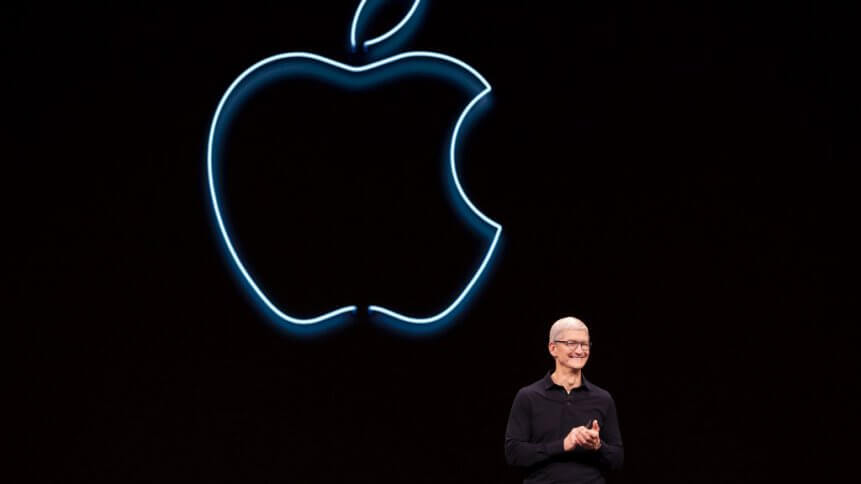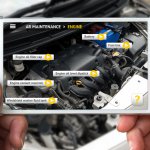UWD – the tech behind Apple and BMW’s digital car key

- Apple announced a virtual car key feature at this year’s WWDC
- BMW is listed as its first partner to utilize the technology
- Apple’s U1 chips and its use of UWB are the main elements of the new virtual car key development
At Apple’s Worldwide Developers Conference (WWDC), the tech giant announced it is launching a new iPhone feature that will enable drivers to unlock their cars wirelessly using their mobiles.
The feature comes together as part of the newly revealed iOS 14 and the introduction of its ultra-wideband tech (UWB), which Apple describes as “GPS at the scale of your living room.”
This is one of the first extensive use cases of Apple’s U1 chips. These chips rely on a heightened spatial awareness, which means they enable devices to determine each other’s location when in close proximity. This unique characteristic has been strongly associated with improving Apple’s AirDrop file-sharing feature, and it seems like the iPhone maker has found new way to utilize the chips.
Tesla’s Model 3 had offered car owners a virtual key via the Tesla app on smartphones. Samsung also offers virtual car keys that utilize near-field communication (NFC), which requires car owners to physically tap their mobiles on car doors to unlock. In contrast, Apple’s UWB method – which also uses NFC technology – automatically unlocks the vehicle when car owners are in near proximity.
The first model to work with Apple’s feature will be the new 2021 BMW 5 Series, coming out later this month.
Meanwhile, Apple is also working on an industry-wide standard that would use its new U1 chips instead of depending solely on NFC. The tech giant envisions its U1 chips with UNB will bring a new level of convenience to car owners, especially those in perpetual search for their keys. In BMW’s blog post, it described the process as “first [needing to] pair your iPhone or Apple Watch with a car that supports CarKey. Next, all you need to do is hold your Apple device near your car door’s handle.”
There are authentication processes that involve Face ID or Touch ID for extra security. However, car owners can opt out of this process by enabling the Express Mode.
In the event that an iPhone’s power running out, the system will still be able to work for up to five hours. At this point, the virtual key will switch from UWB to NFC automatically in order to make this possible.
Another interesting feature, as explained in a video by Apple engineer, Matthias Lerch, is key sharing. Car owners can share their digital car keys with family or friends through the Messages app. Additionally, vehicle owners can set up controls like limiting the vehicle’s acceleration, its top speed, or stereo volume – a versatile function that may appeal to families who are sharing a vehicle.
Apple said it wouldn’t get any data on when car owners access their cars or with who they share it with.
YOU MIGHT LIKE

Car manuals of the future will be on mobile
Marvin Pepperle, BMW’s product manager for its digital key endeavor, said “the digital key is not saved in the BMW app, the key itself is saved in the secure element of an iPhone, which means that it is accessible from the operating system.” In other words, this secure approach prevents car key signal hacking, a means for bad actors to hack signals from a key fob, giving them access to the car.
“UWB prevents these man-in-the-middle attacks – nobody can get in-between, copy the signal and then reuse it or extend it,” Pepperle concluded.
The idea of a virtual car key on iPhones reflects how ubiquitous applications are on mobile phones and an ever-growing mobile-first society. Mobile phones are now a fixture of modern life, and users rely on these sleek, pocket-sized devices for digital payments, online shopping, communications, navigation, and many more.
Neil Shah, an analyst at Counterpoint Research, believes UWB will be a major component in future applications of the iPhone and Apple products.
Shah shared with Wired that, “Apple will look to this wireless protocol for other Apple and third-party devices.” He continues that the tech giant’s U1 chips, which equip iPhones with the security needed, will be a major game-changer in optimizing financial services.
“Financial transactions with other devices such as ATMs, point-of-sale terminals will be other future popular use cases,” Shah added. Ultimately, Apple is moving closer to its devices becoming the only thing owners need in their pockets.









